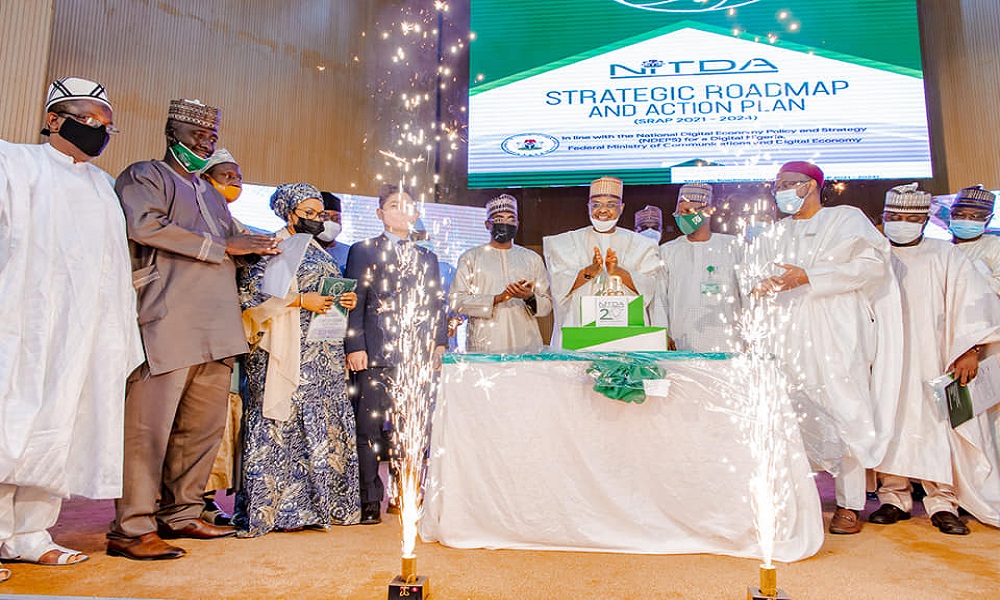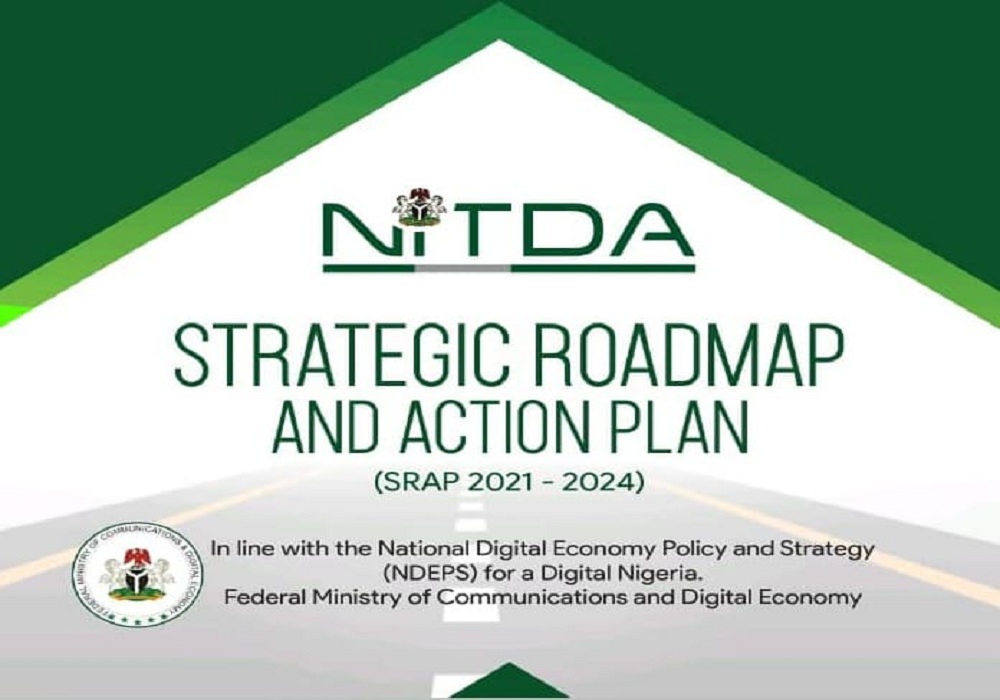The Strategic Roadmap and Action Plan (SRAP 2021-2024) is built on seven pillars with their respective goals and objectives, which are:
- Developmental Regulation: This pillar will foster dynamic regulatory instruments that will unlock opportunities across different sectors of the economy.
- Digital Literacy and Skills: This pillar will enable the development of digital skills of Nigerians across different works of life as well as support the goal of achieving a 95% digital literacy level in the next ten years.
- Digital Transformation: This pillar will provide a robust digital platform to drive digitalisation processes in the digital economy.
- Digital Innovation & Entrepreneurship: This pillar will enable innovation-driven enterprises and Micro, small and medium enterprises to thrive. We expect that the outcome of this pillar will create opportunities for job creation.
- Cybersecurity: This pillar will strengthen cyberspace and reduce vulnerabilities exploitable by threat actors to create a vibrant digital economy. This will, in turn, protect the digital asset and allow citizens to have confidence in the digital economy.
- Emerging Technologies: This pillar will facilitate the adoption and adaptation of emerging technologies in Nigeria. This pillar will map the development of the digital economy with sustainable development goals in providing quality education, poverty eradication, good health and well-being, reducing inequalities et cetera.
- Promotion of Indigenous Content: This pillar will create an enabling environment for promoting and adopting indigenous innovation for a digital economy. This pillar will develop indigenous products and services, increase patronage, and create an enabling condition for iterative problem-solving by indigenous digital technology.
NITDA stated during the unveiling of the SRAP through its Director-General, Mallam Kashifu Inuwa Abdullahi that notably, every pillar has its goals, initiatives to drive the attainment of the goals, objectives and desired impact.
“Additionally, we introduced a new approach by the formation of workstreams into the implementation process. This workstream approach will aid the harmonisation of roles, smoother planning, cross-pollination of ideas and better inter-departmental planning,” he said.
Abdullahi added, “I want to assure you that our best days are yet to come. We have all we need to become the best we can. NITDA is willing, able and ready to support every Nigerian to achieve the goal of a digital and prosperous Nigeria.”

